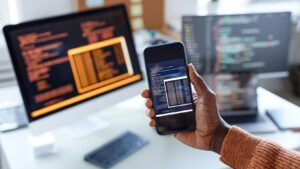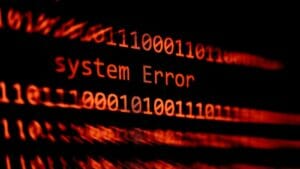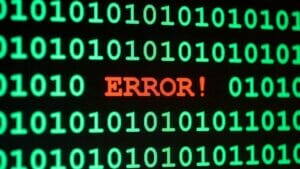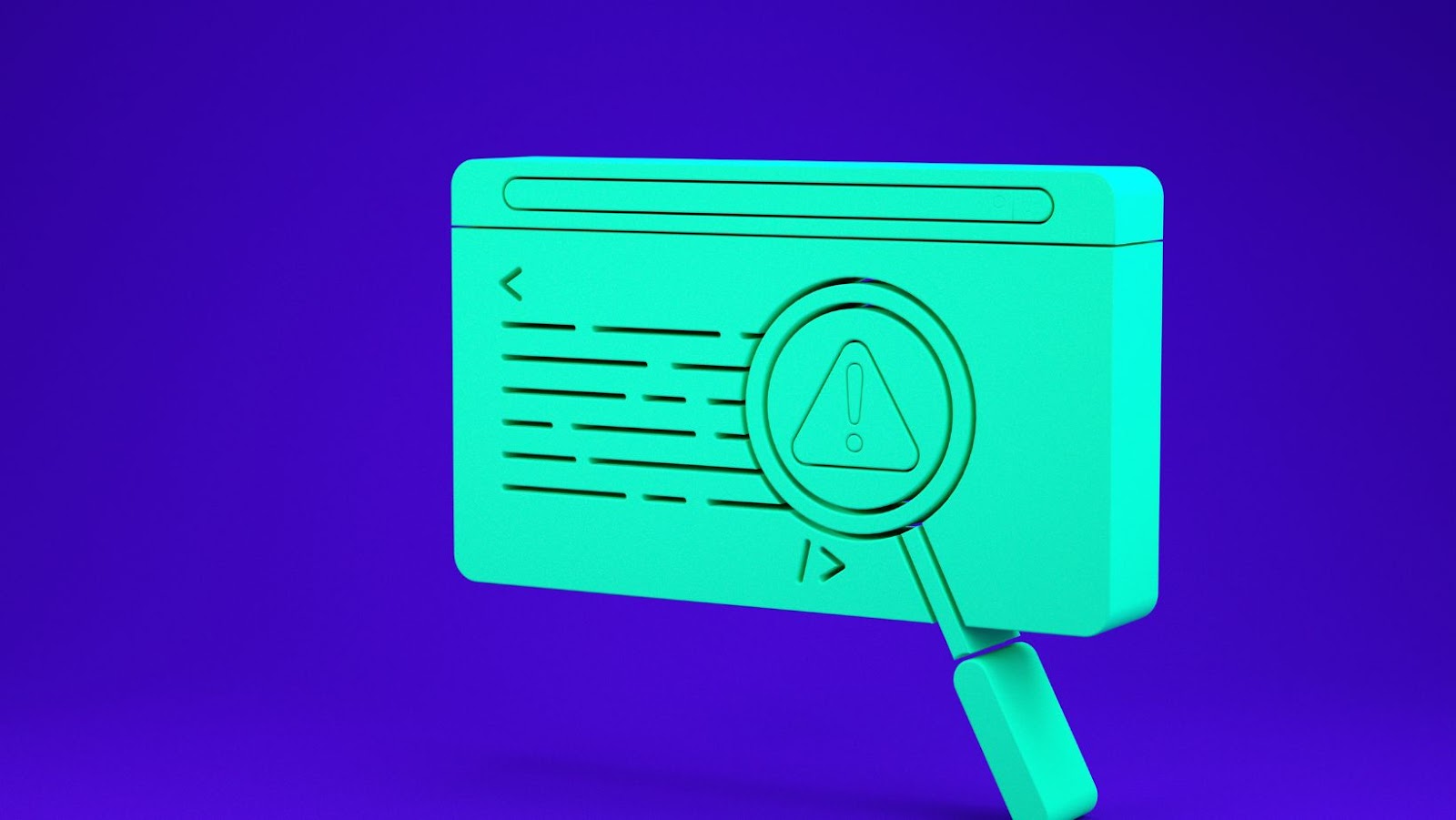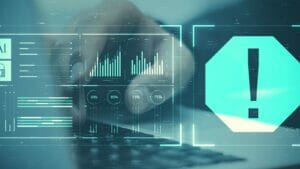
Coding is a constantly evolving field, and as a programmer, it’s essential to keep learning, experimenting, and exploring new technologies to improve your skills continuously.
Here are some tips to help you keep learning and experimenting:
1. Set learning goals: Identify what you want to learn and create a plan to achieve those goals.
2. Take courses and attend webinars: Online courses and webinars are an excellent way to learn new technologies and programming languages.
3. Join coding communities: Participate in coding communities, ask questions, and share your work to receive feedback.
4. Work on personal projects: Personal projects allow you to experiment with new technologies and coding styles.
Remember, coding is a skill that takes time and effort to master, so keep learning and experimenting to improve your coding skills continually.
Pro Tip: Take breaks and step away from your screen to avoid burnout and keep a fresh perspective.
Benefits of Continuous Learning in Coding
Learning and experimenting with coding is an essential part of the journey to become a successful coder. Therefore, it is important to keep learning and experimenting new skills, technologies and frameworks to stay in touch with the latest coding trends. Doing so not only provides you with more knowledge but also helps you to improve your coding skills.
Let’s go through some benefits of continuous learning in coding.
Importance of keeping your coding skills up-to-date
Keeping your coding skills up-to-date is crucial in today’s ever-changing technological landscape. Continuous learning and experimentation are essential for improving your coding skills and staying ahead of the competition.
Here are some benefits of keeping your coding skills up-to-date:
- Staying relevant: By keeping up with the latest coding trends and technologies, you can ensure that your skills stay relevant in the job market.
- Boosting productivity: Keeping your coding skills up-to-date can help you work more efficiently, increasing productivity.
- Enhancing creativity: Continuous learning and experimentation can help you think outside the box and develop creative coding solutions.
- Network expansion: Learning from industry experts and attending coding events can help you expand your professional network and open up new career opportunities.
In conclusion, keeping your coding skills up-to-date is key to staying competitive in the tech industry. So remember to keep learning and experimenting to improve your coding skills continually.
__dopostback(‘ctl00$maincontent$pdflink0’,”)
Continuous learning and experimentation are vital to improving your coding and problem-solving skills. Here are some ways in which they can help you:
1. Up-to-date Skills: Continuous learning ensures you are up-to-date with the latest techniques and tools in coding, which helps you tackle new problems better.
2. Increased Efficiency: Experimenting with different coding solutions helps you discover quicker and more efficient problem-solving methods.
3. Boosts Creativity: Keeping up with coding trends and experimenting with new methodologies helps you approach problems with creative solutions.
4. Big-Picture Thinking: Continuously learning helps you see the big picture and understand how different pieces of code fit together to create a larger functioning system.
Pro tip: Regularly take on new coding challenges to sharpen your problem-solving abilities and experiment with new methods to keep your skills current.
__dopostback(‘ctl00$os2contentplaceholder$dgtestinfo$ctl02$lbadmticket’,”)
Continuous learning and experimenting in coding can open up new and exciting opportunities to work on innovative projects. Here are some benefits of continuous learning and experimenting in coding:
1) Expand your skillset: Keeping up with the latest technologies and programming languages can help you expand your skillset and tackle new challenges.
2) Improve your problem-solving skills: Learning new coding techniques and approaches can help you approach problems creatively and flexibly.
3) Build a stronger portfolio: Continuously learning and experimenting with coding can give you an edge in the job market by helping you build a more diverse and impressive portfolio.
4) Open up new career paths: Keeping up with the latest developments in coding can help you stay ahead of the curve and open up new doors in your career.
In conclusion, it is crucial to keep learning and experimenting in coding to improve your skills, stay competitive, and take advantage of new opportunities to work on exciting projects.
Methods for Continuous Learning
Learning to code is an ongoing process. So it’s important to keep learning new concepts and experimenting with novel ideas to become a better coder.
In this article, we will discuss different methods you can use to continue enhancing your coding skills. From online courses to reading technical articles, these will help you become a better, more knowledgeable programmer.
Online coding courses and tutorials
Consider taking online coding courses and tutorials to keep improving your coding skills and stay up-to-date with the latest trends and technologies.
Here are some popular platforms for online coding courses and tutorials:
- Udemy: With over 100,000 online courses, including numerous coding courses, Udemy is a popular choice for online learning.
- Codecademy: Codecademy offers an interactive and hands-on approach to learning to code with lessons in various programming languages.
- Udacity: Udacity offers a range of courses from beginner to advanced levels in programming, machine learning, data science, and more.
- Coursera: Coursera partners with top universities and organizations to offer online courses and coding and computer science specializations.
By consistently learning and experimenting with new coding techniques and languages, you can stay ahead of the curve and advance your career as a developer.
__dopostback(‘_ctl0$m_displaycore’,’redisplay|175,,0′)
Participating in coding communities and forums is an effective way to keep learning and experimenting, improving your coding skills. In addition, these online communities provide several benefits such as access to a network of experienced coders, exposure to diverse coding techniques, and the opportunity to collaborate on projects.
Here are some tips for participating in coding communities and forums:
- Find a forum or online community that aligns with your coding interests and goals.
- Familiarize yourself with the rules and guidelines of the community.
- Engage in discussions, ask questions, and share your knowledge.
- Contribute to open-source projects and collaborate with other developers.
- Keep an open mind and be receptive to feedback and critiques.
Pro Tip: Participating in coding communities and forums can also expand your professional network, providing access to job opportunities and professional development resources.
Attend coding conferences and workshops
Attending coding conferences and workshops is an excellent way to keep current with technological advances and learn new skills to improve your coding abilities.
Here are some methods for keeping up with the ever-changing tech landscape:
Attend workshops and meetups: These are great ways to gain knowledge and connect with fellow coders. Choose events that interest you and align with your career goals.
Participate in online communities:
- Join developer forums.
- Follow blogs of thought leaders in your field.
- Participate in social media discussions to stay current.
Take online courses: Websites such as Udemy, Coursera, W3Schools, and Codecademy offer affordable courses to improve your coding skills.
Start working on side projects: Pursuing an extra project alongside your daily work can help you experiment with new technologies and develop new skills.
Keep learning and experimenting with new things to become a valuable asset in your field.

Importance of Experimenting in Learning
Experimenting is an essential tool in the development of coding skills. It allows coders to explore the capabilities of certain programming languages, test different approaches, and dig deeper into their craft.
Experimenting can help coders to learn faster and gain greater insight into their coding projects.
In this article, we will look at the importance of experimenting and how it can be used to improve your coding skills.
Creating new coding projects to experiment with new tools/techniques
Experimenting with new tools and techniques is essential for improving your coding skills and staying up to date with the latest trends in the industry. In addition, it enhances your skills and opens up new creative possibilities for your coding projects.
Here’s how you can create new coding projects to experiment with new tools/techniques:
1. Identify your learning goals and the tools/techniques you want to experiment with.
2. Brainstorm a list of project ideas that align with your learning goals and will allow you to apply the new tools/techniques.
3. Start with small, manageable projects to avoid feeling overwhelmed and maintain motivation.
4. Track your progress and reflect on what you’ve learned from the experience.
Remember, the key to improving your coding skills is learning and experimenting. So, don’t be afraid to try something new and challenge yourself.
Pro tip: Joining online coding communities can give you access to various projects, and you can learn from others while getting feedback on your coding projects.
__dopostback(‘_ctl0$middle$trackingsummary$_ctl2$trackingnumberlink’,”)
Collaborating on coding projects with other coders is an excellent way to learn from people with diverse skill sets and experience in the field. Constant experimentation is necessary to keep learning and improving your coding skills.
Here are some reasons why collaborating on coding projects is beneficial:
- Shared learning: Collaborating provides an opportunity to learn from others’ experiences and skills. This, in turn, helps to accelerate your learning.
- Problem-solving: Collaboration brings together people with problem-solving skills and perspectives on coding issues, leading to more efficient and effective solutions.
- Networking: Collaborating with other coders presents a great opportunity to expand your network within the coding community and build relationships with other like-minded individuals.
Remember, experimentation is crucial to keep learning and improving your coding skills. Continuously experimenting with different techniques and approaches will ultimately lead to mastery of the craft.
Pro Tip: Join coding meetups or online forums to connect with other coders and collaborate on projects.
Participating in coding competitions and hackathons to challenge yourself
Participating in coding competitions and hackathons is an excellent way to challenge oneself and enhance coding skills. In addition, it helps in achieving practical exposure and applying theoretical knowledge to real-life projects.
Here are the reasons why one should participate in such events:
- Boosts creativity: It challenges programmers to think innovatively and develop unique and efficient ideas.
- Improves problem-solving: Participants encounter various challenges in different programming domains, which help them develop a problem-solving approach.
- Enhance knowledge: Competitions offer a diverse range of educational programming tasks that cover different areas of computer science to broaden the programmers’ perspective.
- Builds a network: Working alongside other programmers can create opportunities for new projects and collaborations, helping participants to build a professional network.
Participating in competitions encourages continuous learning and experimentation, which is essential for the growth of one’s coding skills. Therefore, embrace such opportunities to keep learning and experimenting to improve your coding skills.
Pro tip: Start with small challenges before moving onto bigger contests. This will help build confidence and a better understanding of the competition format.

Tips for Improvement
Becoming a great coder does not end after completing tutorials and courses. To truly master coding, you need to keep learning and experimenting to improve your skills. With consistent practice and refinement, you can reach a level of proficiency that most coders aspire to.
In this article, we will discuss some tips and tricks to aid you in your improvement journey.
Set achievable goals for learning and practicing
Setting achievable goals is key to improving your coding skills through learning and practice. Here are some tips to help you get started:
Start Small – Don’t try to tackle too much too soon. Start with simple coding challenges before moving on to more complex ones.
Learn by Doing: The best way to learn to code is by doing it. Make sure to apply what you have learned through practice.
Practice, Practice, Practice: As with any skill, practice is key. Commit to practicing coding consistently, even for a few minutes daily.
Get Feedback: Seeking feedback from coding mentors, peers and community can be an effective way to improve.
Pro tip: Celebrate small milestones to stay motivated towards achieving your larger coding goals.
__dopostback(‘ctl00$maincontent$ctrlbadgelist$rptactivecerts$ctl00$lnkbtnshowbadge’,”)
As a programmer, it’s essential to keep learning and experimenting to improve your coding skills. However, taking breaks and avoiding burnout is equally important to maintain a clear mind.
Here are some tips to help you balance your learning/ experimenting and relaxation:
Set a schedule that includes time for coding and breaks. Stick to it.
Take breaks every 45-50 minutes to rest your eyes, stretch, or chat with a colleague/friend.
Use your breaks to do something you enjoy, like reading, listening to music or podcasts, or taking walks.
Get enough sleep and exercise to help you manage stress and stay alert.
Be mindful of your screen time and take time off your computer/phone when possible.
Remember that learning and experimenting are crucial to improve your coding skills, but taking breaks is equally important to keep a clear mind and avoid burnout.
Pro Tip: Use the Pomodoro Technique to balance learning/ experimenting and relaxation. This technique involves working 25-30 minutes and taking a 5-minute break. Repeat the process four times, then take a more extended break of 15-20 minutes.
Learn coding best practices and coding standards
Learning coding best practices and standards is crucial to becoming a proficient programmer, but it is equally important to keep experimenting and learning to improve your coding skills. Here are some tips to help you achieve this:
Embrace a growth mindset: Be open to learning new things and making mistakes. This mentality helps you continuously improve your coding skills and identify areas for growth.
Learn from other developers: Collaborate and seek feedback from other programmers. This can help you gain new perspectives and learn best practices.
Experiment with new technologies: Try out new frameworks, libraries, and programming languages. This can help you expand your skill set and stay relevant in the tech industry.
Practice, practice, practice: Set aside time daily to practice and apply what you have learned. This repetition can help solidify your knowledge and improve your coding speed and accuracy.
Pro tip: Sign up for programming forums, attend hackathons or coding boot camps where you can meet and interact with other developers.

Tools to Improve Coding Skills
Learning to code is an ongoing process and the best way to improve your coding skills is by learning and experimenting.
There are many tools available on the web that can help you do this. From online courses to coding challenges, there is a tool to help you tackle any coding hurdle.
In this article, we’ll look at some of the most popular tools to help you take your coding skills to the next level.
Integrated Development Environments (IDEs)
Integrated Development Environments (IDEs) are a powerful tool that can help programmers improve their coding skills by streamlining the development process and improving overall code quality.
IDEs have built-in features such as code highlighting, auto-completion, and real-time error checking, which enable users to write code more efficiently and without errors. This reduces the time needed to debug code and frees up more time for experimentation and learning.
IDEs often come with a suite of development tools, such as version control systems, package managers, and build automation tools, which can help improve code organization, standardization, and collaboration among teams. Adopting and integrating an IDE into your workflow can be the key to substantially improving your coding skills.
Pro tip: Experiment with different IDEs and find the one that best suits your programming needs and personal preferences to maximize your coding efficiency and learning potential.
__dopostback(‘ctl00$maincontent$lnkpdfver2’,”)
As a programmer, having a reliable and powerful code editor is crucial for improving your coding skills. A code editor is a software tool that enables you to write, edit and test code more efficiently. Several options are available to you, depending on your experience level and your programming language.
Some of the most popular code editors are:
- Visual Studio Code: This open-source and cross-platform editor supports a wide variety of programming languages. It includes many features such as debugging, syntax highlighting, and intelligent code completion.
- Atom: Atom is a free and open-source editor customizable down to the core. It includes built-in Git integration, smart autocompletion, and cross-platform editing.
- Sublime Text: Sublime Text is a lightweight and fast cross-platform editor supporting many programming languages. The editor has an uncluttered interface and intuitive shortcuts, making it popular among developers.
Remember, the key to improving your coding skills is not just about finding the right code editor, but also about consistently learning and experimenting with new techniques and approaches to problem-solving. So keep Learning and Experimenting to Improve Your Coding Skills.
Pro tip: Customizing your editor and learning keyboard shortcuts can significantly improve your coding efficiency and productivity.
Debugger and Profiler Tools
Debugger and profiler tools are essential resources for improving your coding skills and developing high-quality code. A debugger tool helps you identify and diagnose errors in your code by allowing you to step through the code line by line and inspect variables and function calls in real-time. On the other hand, a profiler tool helps you optimize your code’s performance by providing detailed information on how long each part of your code takes to execute, memory usage and identifies the critical section of your code that requires optimization.
By using these tools, you can improve the quality of your code, identify areas for improvement, and ultimately become a better programmer. However, remember that these tools should not be a substitute for continuous learning and experimenting to develop new coding skills. Therefore, always keep learning, experimenting and practicing to take your coding productivity and efficiency to the next level.








